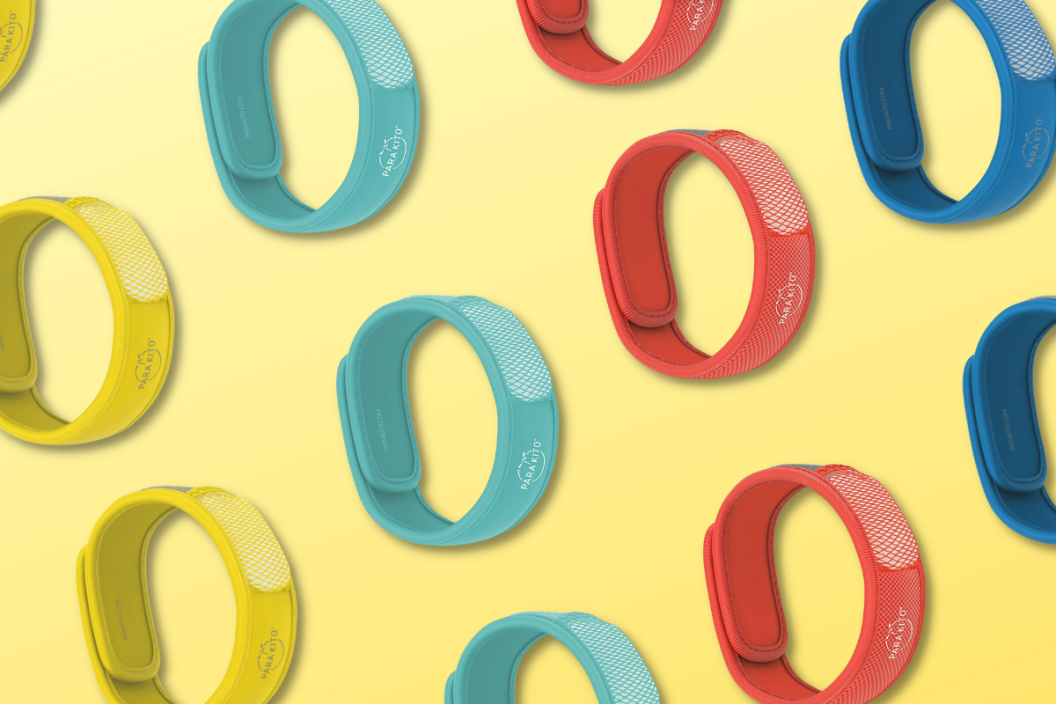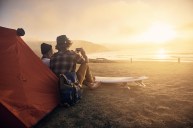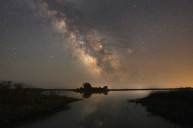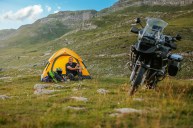Spring is the season of planning; winter is in the rear-view mirror, and summer adventures are on the horizon. Slowly but surely, you begin welcoming your camping equipment out of storage, and plans are being made for the first big trip of the season. The memorable moments from past adventures fill your mind, and suddenly you're daydreaming about your next camping trip.
As a seasoned camper, I can tell you that with proper preparation, beach camping is one of the greatest camping experiences possible. So what do you say, beach camping, anyone?
How To Camp On The Beach
Beach Camping on the Best Coast, West Coast
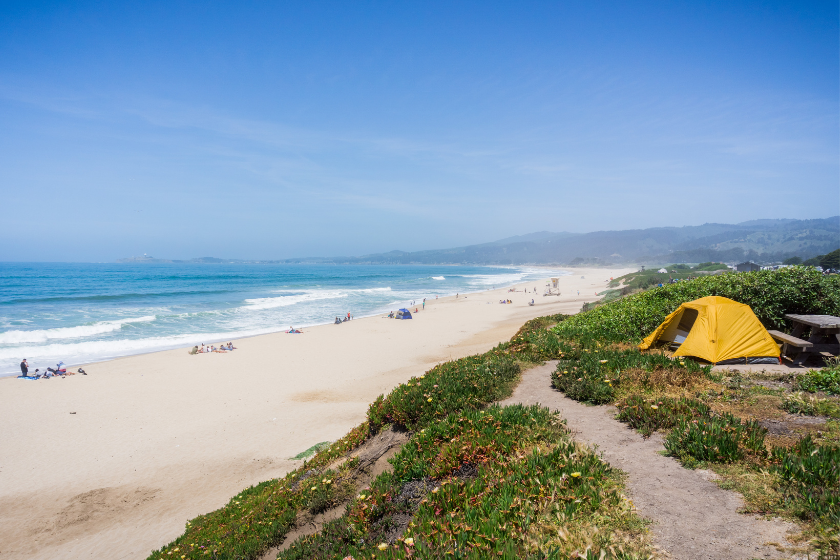
Sundry Photography via Getty Images
Imagine kayaking to your campsite through a picturesque bay and watching whales breach as the sun sets into the Pacific ocean gently. You end the day falling asleep to the sound of waves crashing against a sandy beach. Sounds quite nice, right? On the West Coast, we are spoiled with beach camping options.
The Lost Coast of California is perfect for adventurous surfers who desire backpacking a few miles along a remote coast on a search to experience crowd-less waves and unimaginable night skies untouched by city lights.
In Oregon, the lush forests meet the ocean, providing a unique camping experience and shade from the summer sun! Northern Washington has some of the most beautiful remote beachfront camping locations that I've ever seen, perfect for multi-day adventurers.
Proper Preparation is #1
Beach camping offers many opportunities that aren't available when camping in the mountains. Still, as I said, proper preparation is key to ensuring you have the best experience possible.
The main takeaway for beach camping is to pay attention to the few key details I outline below. While the small details may seem minor at first, it is imperative to avoid a build-up of minor issues into disastrous problems. Here are our tips to maximize the enjoyment of your next (or first!) beach camping experience.
Choosing the Right Location
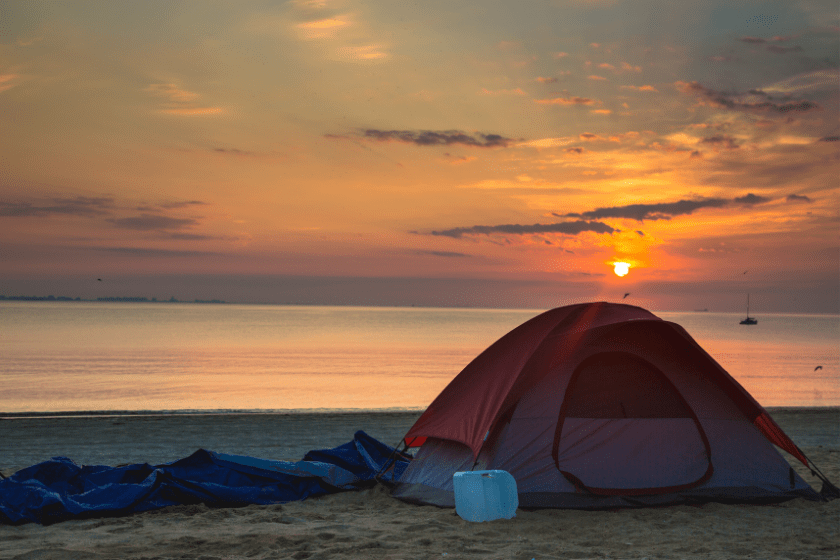
Daynjer-In-Focus via Getty Image
The first thing to consider for your beaching camping excursion is the location. While some states or counties allow camping on public beaches, others may be more strict and have designated beach campgrounds or tent sites specifically for overnight camping. Suppose you plan on hiking into isolated portions of state parks or national park beaches. In that case, you may need to acquire a backcountry permit from park rangers or a visitor center (these typically cost under $20).
Start with choosing the area you want to camp. I choose my location by determining what activities I will do during the day. For instance, if I want to dive for Abalone, I need to find a specific area like the Mendocino Coast. Fishing, hiking, surfing, and snorkeling are excellent ways to spend your days on the beach, and it's super rewarding when you take the extra time to find a perfect spot.
An online forum is a great way to discover new places to camp from seasoned beach campers. I have frequently turned to this Reddit Forum for my personal camping questions. Once you find the beach of your choice, determine if a camping permit is required and make whatever necessary purchases. Then the fun part really begins - you can start packing for your next oceanside getaway!
RELATED: Camping California's Central Coast: The Best Spots to Pitch a Tent on the Pacific
Pack the Right Gear
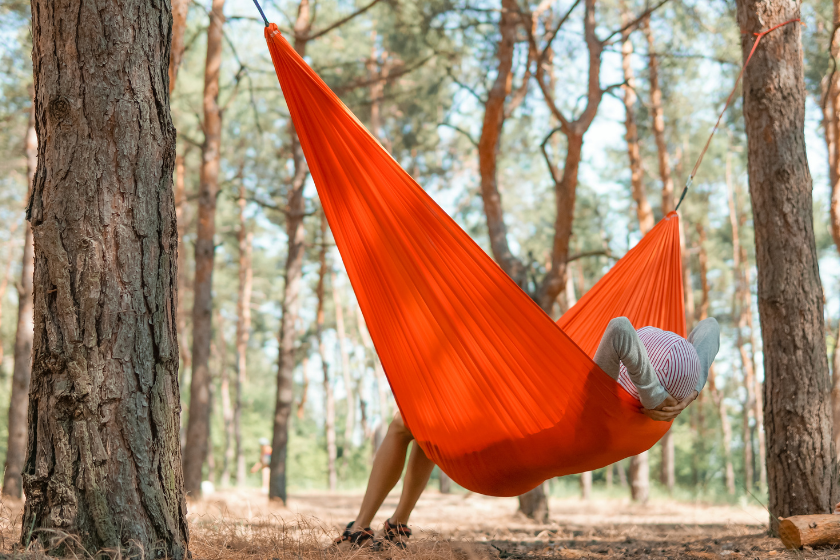
Happycity21 via Getty Images
Tent camping on sandy beaches is very different from camping in the woods or by a lake. If there isn't any vegetation around, you'll likely be pitching your tent in the sand. Soft sand will make it trickier to stake your tent down, so you'll need special stakes or rocks from the surrounding area. When there aren't any trees or shaded hiking trails around, the sun can become overbearing and turn your tent into a sauna. If possible, I build a shade structure with nearby driftwood and use a tarp to shade the tent from the sun.
Beach Camping Packing List
- Tent or hammock
- Sand Pegs to secure your tent in deep sand (you can also use 2' pieces of 1/2 rebar)
- Plenty of drinking water with an insulated water bottle
- Tarp (for a shade structure, can also be used under your tent as a sand barrier)
- Ziploc bags (To keep your electronics safe and sand-free)
- Flashlight/headlamp with spare batteries
- Aluminum Foil
- Portable phone charger
- Paper towels/toilet paper if restrooms aren't available
- Towels (no one likes a sandy tent)
- Fishing pole ( fish tacos or ceviche, anyone?)
- Insulated sleeping bag
Food & Treats for your Stay
The feeling of taking your first bite of a well-cooked camp meal is quite unbeatable. From simple meals to extravagant feasts, planning at home will make your camp meal preparation more smooth. It will also minimize the amount of trash you have to pack out. I love foil-pack meals, wrapping all of my ingredients into aluminum foil and laying it on a bed of coals. There are so many foil-pack recipes, like these ones, to choose from. Don't forget the s'more supplies!
Animals, such as raccoons and birds, are known to quickly steal left-out food. It is essential to store your food safely like a cooler. If there is a picnic table at the site, you can tie the cooler to the table for additional security.
Be Aware of the Tides
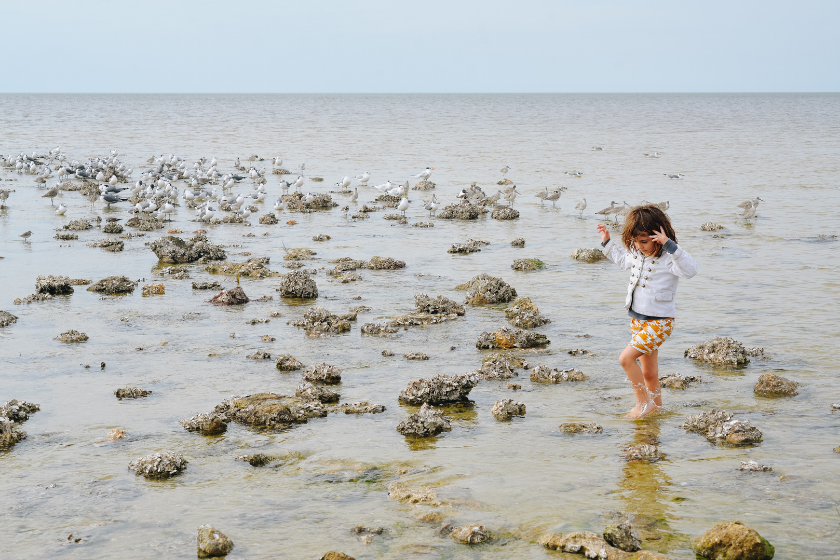
Lisa5201 via Getty Images
Trust me, it is not fun waking up in the middle of the night to a flooded tent. It is extremely important to check the tide charts to determine when high tides and low tides are expected. Make sure to pitch your tent above the high tide mark, which can be found by searching for the most elevated line of driftwood or seaweed on the beach.
Other Important Information
When backpacking into your campsite, ensure you park your vehicle in a recreation area with a designated parking lot. Do not keep any valuables in the car.
Suppose you are more prone to car or RV camping. In that case, Southern California has many beachfront RV parks on beautiful beaches with electrical hookups, dump stations, wi-fi, and fire rings, perfect for the family getaways. If you veer from your RV site and decide to drive on the beach, air your tires down 10-25 psi and turn traction control off. Carry an air compressor, tow strap, shovel, and traction boards.

Raised in Butte, Montana, Josh Monthei is a nomadic photographer, skateboarder, and an over-caffeinated writer. He has been traveling North America for over seven years. His travels have spanned over 100,000 miles and include a 3000-mile skateboard trip from Los Angeles to New York City. Instagram: @josh.monthei
Where are your favorite places to go camping? Share your adventures with us on our Wide Open Roads Facebook!
READ MORE: Summer's Best US Beaches to Visit: Surf Edition
